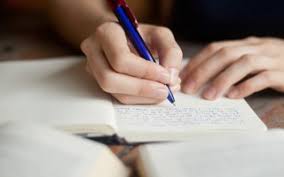Literary Arts are the forms of art that use language (spoken or written) to express thoughts, emotions, ideas, and stories in a creative way. Unlike visual arts (which you see) or performing arts (which you watch or hear), literary arts are centered on the use of words — to inform, entertain, educate, or inspire.

They can be expressed through storytelling, poetry, drama writing, and prose. These arts appeal mainly to our sense of hearing and imagination, and they require deep thinking, good memory, creativity, and command of language.
Every culture in the world — including Nigeria — has used literary arts as a way of passing down history, values, beliefs, and entertainment from generation to generation.
Literary art is the creative use of spoken or written words to communicate meaningful experiences or ideas. It is a way of turning language into a powerful tool for artistic expression, cultural preservation, and social communication.
In simple words, literary arts are all the beautiful things people say, write, or perform using words — either as stories, poems, plays, speeches, or proverbs. They may be fictional (imagined) or real.
Storytelling :- This is the act of telling stories — usually with characters, setting, plot, and a message. In African culture, storytelling is mostly oral, passed from one generation to another through word of mouth. These stories often feature talking animals, tricksters like the tortoise, wise elders, and moral lessons.
Storytelling teaches children about courage, respect, greed, wisdom, honesty, and patience. The storyteller may use gestures, voice changes, songs, or even drama to make the story more interesting. This is why storytelling is also sometimes called an oral performance art.
Poetry:- Poetry is the art of writing or saying words in a rhythmic and often emotional way. It uses devices like rhyme, repetition, similes, metaphors, and imagery to express ideas beautifully.
Poems are usually written in lines and stanzas, and they can be serious, humorous, sad, or joyful. Traditional African poems include chants, war songs, praise poems (like Yoruba Oriki), and proverbs. In modern times, poems are also written and published in books or performed aloud as spoken word poetry.
Prose :- Prose is the normal, everyday way of writing or speaking — not written in stanzas like poetry, and not acted like drama. It includes short stories, novels, essays, biographies, and articles.
Prose is direct and continuous, written in sentences and paragraphs. It is the most common form of writing used in textbooks, newspapers, storybooks, and letters. Through prose, writers tell stories, share experiences, describe people or places, or explain things clearly.
Drama Script Writing:- Before actors can perform a play, there must be a script — a written version of the story with dialogues, scenes, stage directions, and character roles. Scriptwriting is the literary side of drama and theatre.
The script tells the actor what to say, how to move, when to enter or exit the stage, and what emotions to show. Good scriptwriters know how to build suspense, create believable characters, and deliver powerful messages.
Drama scripts can be written for the stage (theatre), radio, TV, or movies.
Oral Literature :- This is literature that is not written down, but passed orally — by speaking and listening. Oral literature includes folktales, riddles, proverbs, chants, songs, myths, legends, and fables.
In many Nigerian communities, oral literature is a big part of the culture. Children sit around elders to listen to stories in the evening. These stories not only entertain but also teach life lessons, preserve history, and shape behaviour.
Literary arts are not just about fun or beauty . They serve deep purposes in society. Some of the key reasons why literary arts are important include:
Nigeria is blessed with many famous writers, poets, and dramatists who have used literary arts to change lives and promote our culture. Some examples include:
If you enjoy speaking, reading, or writing, you may consider careers such as: